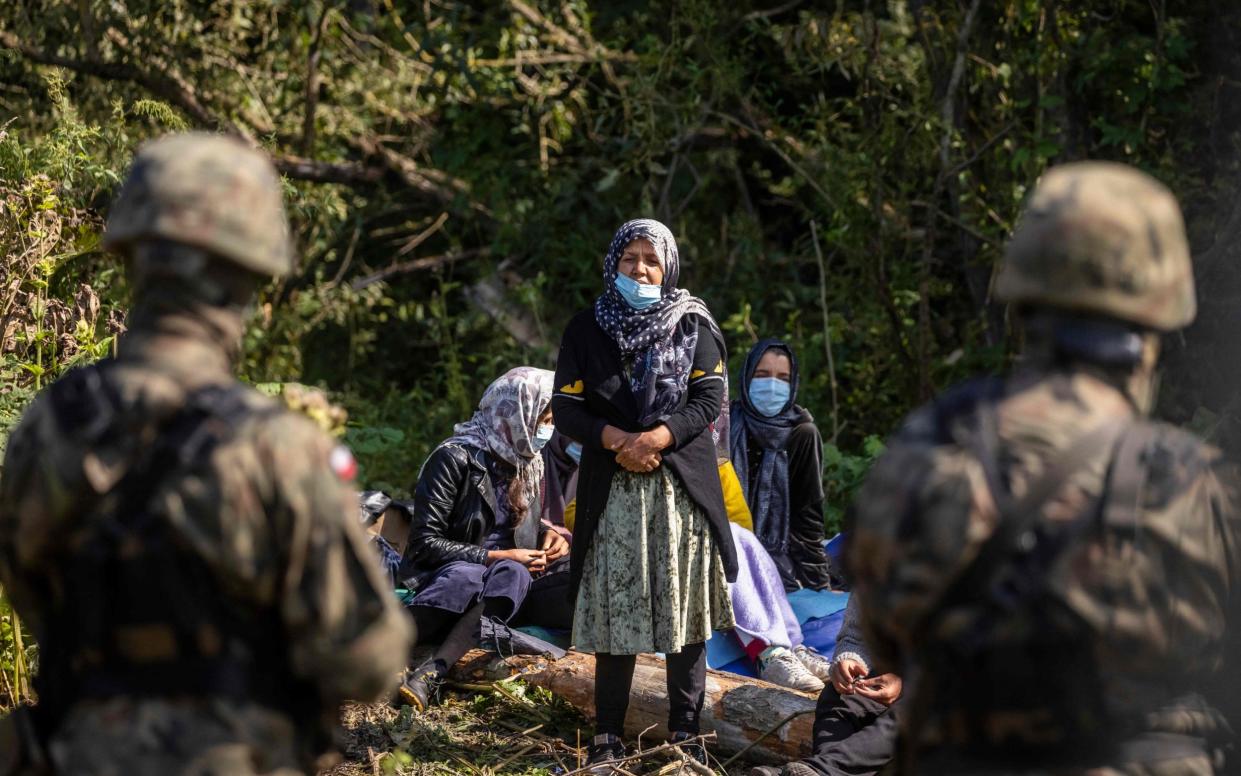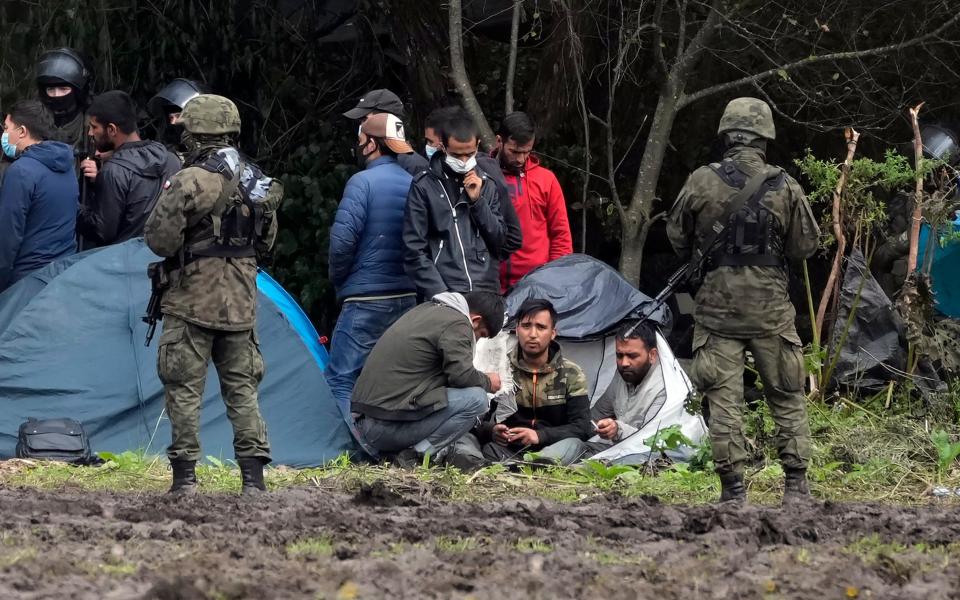Germany and Poland boost border patrols to stem Belarus migrant 'attack' on EU

Germany announced joint patrols on its border with Poland on Wednesday to stem the flow of migrants entering illegally after travelling to Europe via Belarus.
Horst Seehofer, the German interior minister, accused Minsk of “state-sponsored human trafficking” over its policy of encouraging migrants to use its territory to enter Europe.
The announcement came a day after Poland's prime minister said the EU was facing a "cynical attack" on its eastern frontier.
Under the new measures, German border guards will mount joint patrols with their Polish counterparts inside Poland to prevent migrants reaching the border.
More than 5,000 migrants have entered Germany illegally via the route through Belarus and Poland since August, according to official police figures.
The numbers have risen rapidly and more than 100 are currently crossing a day, say regional officials.

But Mr Seehofer stopped short of ordering temporary border controls as the German police demanded earlier this week. “Closing the border is not an option,” he said.
He accused Belarus of using migrants as a political weapon and described the regime of Alexander Lukashenko as a “hybrid threat”.
“State-organized or at least state-sponsored human trafficking is taking place in Belarus,” he said, adding that Germany and the European Union were considering new sanctions in response.
Mr Lukashenko's regime, which is supported by Russia's Vladimir Putin, is openly encouraging migrants to enter Europe via its territory by allowing them to enter Belarus by air if they travel on to the EU by land.
Iran, Pakistan, South Africa, Egypt and Jordan were recently added to the list of countries whose nationals can obtain Belarusian visas on arrival.
The policy is a tit-for-tat response after the EU imposed sanctions in the wake of Minsk’s hijacking of a Ryanair flight in order to detain an opposition activist who was on board.
In Poland, authorities have already responded by erecting a fence on its border with Belarus and stationing thousands of soldiers along it. The surrounding area has been placed under a state of emergency and journalists and aid workers are banned from entering.
The Polish prime minister Mateusz Morawiecki yesterday told the European Parliament that Poland was "strengthening the EU in a very traditional way" by defending its border with Belarus.
"We are facing a cynical attack on our eastern border. It is Poland now which guarantees the EU's safety with Lithuania and Latvia."
But German activists have accused the EU of failing to honour its commitments to genuine refugees by not challenging Warsaw over the new measures.
"At the EU's external border in Poland, the refugee convention is de facto suspended," said Karl Kopp of Pro Asyl, a migrants' rights organisation. "Dictators win when constitutional states themselves break the refugee convention."
Germany is also talking with the governments of countries with direct flights to Minsk to prevent migrants from using them, Mr Seehofer said.
Iraq has already taken measures and no migrants have flown from there to Minsk in recent weeks, he claimed.
However, he admitted broader geopolitical tensions between Russia and Europe over Belarus' growing isolation was making it difficult.
"This problem can only be solved together by the EU. The key to a solution probably lies in Moscow," he said.

 Yahoo News
Yahoo News 
